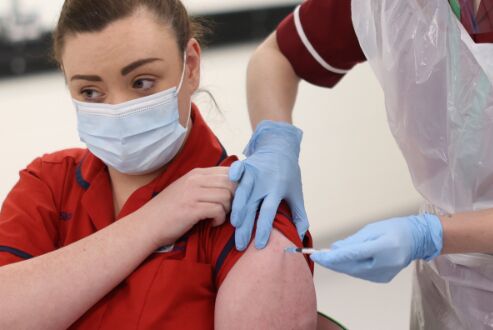Looking forward

For 2020 to be a true turning point in human history, it is important to acknowledge that this year was as much a display of the worst tendencies of humanity as it was the display of its best qualities. To begin with, this was a year that continued to demonstrate that capitalism has, by and large, lost its way.
It is safe to say that 2020 made it even clearer that the only true winners of capitalism will always be the rich and the ultra-rich. That is nothing new. What makes their further enrichment even harder to stomach is the sheer contrast to the 'have-nots'. The World Bank recently estimated that COVID-19 will sink as many as 150 million additional people into extreme poverty by 2021. In the same year, the billionaires of the world added nearly a trillion dollars to their net worth. The reasons are simple. The existing inequity between the rich and the poor means that not only do the rich get to survive systemic shocks like the pandemic, they also hold the means to profit from it. The pandemic was an opportunity to get the ball rolling for economic reform, to finally address growing inequality and to admit that the big corporations and the ultra-rich are as much part of the problem as they could be a part of any possible solution. Instead, leaders generally shirked their duties. Most of the economic relief packages that will eventually come at great cost to taxpayers went into supporting big corporations. The idea that such an action would save jobs is somewhat negated by the fact that most of these corporations, regardless, furloughed or fired millions collectively. The sheer atrocity of the facts is further heightened by the fact that all this was to be expected. It is par the course for an economic system that many say has revealed itself to be an absolute dead-end for development this year. For decades, economists have warned that pushing up the private sector at the cost of the public one is not an advisable course of action. Now, in 2020, the case for increased public intervention in the economy has never been stronger. Even the so-called triumphs of private enterprise such as the much-touted express delivery of multiple vaccine options was a result of public subsidies. Of course, companies such as Pfizer have repeatedly denied that they used public subsidies to fund their vaccines but there is plenty of evidence to the contrary. Many commentators note that such a denial gives companies like Pfizer adequate grounds to profit from selling the vaccine in a time of absolute crisis. Naturally, the answer to the woes of capitalism is not simply a matter of state control. Challenges of inequality, whether in regards to income, food, health, etc., are too large for governments to handle alone and the private sector must be involved. At the same time, the current state of affairs cannot carry on. Thus, in 2021, there is hope that the fight to restore our economies will not be a simple matter of returning, by an large, to the old but boldly reaching forward for a new system or atleast a modified one. Already, there is ample evidence and cause to support increased public-sector involvement in healthcare. But it doesn't end here.
2020 also gave us a glimpse of a far-far greater crisis that is already looming large over the horizon. This year saw the devastation of climate change become more blatant and irrefutable than ever before. Recently, a new report by Christian Aid titled 'Counting the cost 2020: a year of climate breakdown' identified 15 of the most destructive climate disaster and put their cost at atleast USD 1.5 billion and above each. The report noted that this was just based on insured losses and the actual damages were far greater. This, of course, does not even entirely take into account the loss of life and human suffering but serves as an adequate warning for a world obsessed with quantifiable (monetary) gain and loss. Experts say that 2020 is clear proof of climate change and global warming, a year that marks a turning point with climate change disasters becoming more frequent and hard to predict. Yet, by and large, the nations of the world are continuing to miss the opportunity to change the sad narrative on climate change prevention. COP 26 has been pushed back to 2021 on account of the pandemic. There is hope that this will also give countries a real chance to come closer to delivering the Paris Agreement, a long shot considering the world at large is far from achieving even the unambitious goals set under the agreement. But hope springs eternal. Thus in 2021, there is hope that meaningful public-private cooperation will deliver the first glimpses of what a so-called green economy' would be. There is also hope that international cooperation on climate change will strengthen this year and the tendency of detrimentally assigning blame and shirking responsibilities will come to an end.
Ultimately, the biggest hope for change moving towards the future is in regard to expansive growth in multilateral cooperation. Before 2020, the world saw itself moving towards an increasingly nationalistic view of international cooperation that attacks the global organisations that uphold it. In 2021, there is hope that ties of multilateralism will strengthen on a number of issues with an increasing number of avenues for cooperation on problems that no one nation can handle alone.



